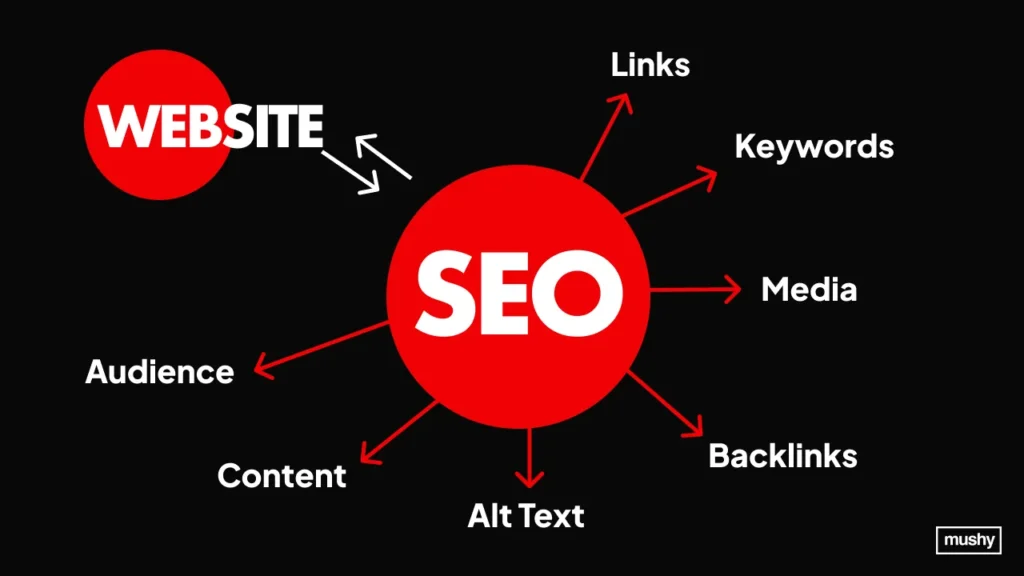What is SEO?
SEO stands for search engine optimisation, and its goal is to improve the visibility of a website or web page in search engine results pages (SERPs).
When a user searches for a specific term, search engines like Google, Yahoo, and Bing use algorithms to rank websites based on their relevance to the search query. Websites that rank higher on the SERPs are more likely to be clicked on by searchers, leading to increased traffic, leads, and sales.
Why is SEO important?
SEO is essential for businesses for many reasons:
- Increased website traffic: The higher a website ranks in SERPs, the more likely it is to be seen by potential customers. It will receive more organic traffic from people searching for products or services like yours, leading to increased brand awareness, lead generation, and sales.
Improved customer experience: When people can easily find your website and the information they seek, it will improve their overall customer experience, increasing customer satisfaction and loyalty.
- Long-term value: SEO is a long-term strategy that can provide steady traffic and leads for your business. This strategy is contrary to paid advertising, which can be expensive and only offer temporary results.
- Improved brand reputation: A website that ranks well for relevant keywords will be seen as a trusted and authoritative source of information, helping to improve brand reputation and credibility.
- Cost-effectiveness: SEO is a relatively low-cost marketing strategy compared to other methods, such as paid advertising.
- Long-term benefits: The benefits of SEO can last for many years, as search engine rankings can take time to build up.

How to get started with SEO:
There are several steps you can take to get started:
- Identify your target audience: Who are you trying to reach with your website? Understanding your target audience will help you choose the right keywords and create relevant content.
- Do keyword research: Identify the keywords potential customers use to search for products or services like yours. This will help you focus your SEO efforts on the most relevant terms.
- Optimize your website for search engines: This includes ensuring your website is accessible to crawl and index by search engines and that your content is well-written and informative.
- Build backlinks: Backlinks are links from other websites to your website. They signal to search engines that your website is valuable and trustworthy. You can build backlinks by guest blogging, participating in industry forums, and submitting your website to directories.
Alt text and accesibility: Alt text is crucial for Search Engine Optimisation (SEO). Search engines use alt text to understand the content of images, which can contribute to the overall ranking of a page in search results.
Here are some benefits:
- Increased brand awareness: When your website appears in search results, it can increase brand awareness among potential customers. This is because people are more likely to remember a website that they have seen before.
- Improved conversion rates: People who visit your website are more likely to convert into customers if they can easily find the information they seek. It can help improve conversion rates by ensuring your website is user-friendly and easy to navigate.
- Increased customer satisfaction: Customers who have a positive experience on your website are more likely to return and do business with you again. It can help improve customer satisfaction by ensuring your website is well-designed and contains valuable information.
SEO is an ongoing process:
SEO is not a one-time thing. You must continually monitor your website’s performance and adjust your SEO strategy as search engine algorithms change.
Conclusion: SEO is a valuable tool for businesses of all sizes. A solid strategy can increase website traffic, improve customer experience, and achieve long-term business goals.






